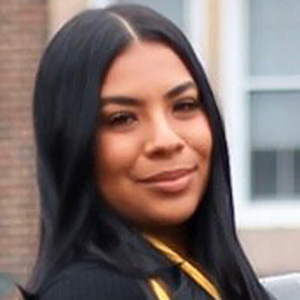ASBMB names 2025 Marion B. Sewer scholarship recipients
The American Society for Biochemistry and Molecular Biology is pleased to recognize the 2025 recipients of the Marion B. Sewer Distinguished Scholarship for undergraduates.
Launched in 2016 by the society’s Maximizing Access Committee, this scholarship supports undergraduate students pursuing studies in biochemistry and molecular biology. Each year, the program awards 10 students $2,000 toward undergraduate tuition and related educational costs.
The 2025 scholarship recipients are Li–Ana Ayala, Leslie Casares, Anika Jaswal, Rachel Kiser, Ebony Lee, Abigail Lopez Freire, Luxel Moliko Djouba, Eva Reilly, Srika Talanki and Angel Tang.
This scholarship honors the memory of Marion B. Sewer, who died in 2016 at the age of 43. A dedicated scientist and mentor, Sewer was involved in efforts to increase the participation of historically underrepresented groups in science. Within ASBMB, she helped lead the Maximizing Access Committee’s Interactive Mentoring Activities for Grantsmanship Enhancement, or IMAGE, workshop, which helps postdoctoral researchers and early-career scientists secure federal research funding.
Below, the 10 2025 Sewer Scholarship recipients describe their career goals, ambitions and research interests. Their statements have been edited.
Li–Ana Ayala, sophomore, The University of Texas at Austin
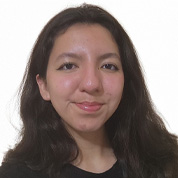
Ayala’s interest in molecular biology began through involvement with the ASBMB Student Chapter at UT Austin. A course on plant biology introduced Ayala to research using mint plant biomolecules in immunotherapy, sparking a fascination with the immune system and the therapeutic potential of natural compounds. Personal experiences also shaped this passion and continue to motivate Ayala’s interest in disease pathogenesis and plant-based immunotherapies. Ayala plans to pursue a Ph.D. in biology, with goals of leading a research lab, refining her scientific focus and ultimately becoming a research scientist dedicated to advancing the understanding of autoimmune diseases. Ayala also hopes to inspire underrepresented students in science, technology, engineering and mathematics, STEM, especially women and the Latinx community. Ayala also hopes to write about scientific discovery in ways that captivate and empower young audiences.
Leslie Casares, senior, Lake Forest College
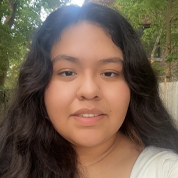
Casares is a neuroscience major actively conducting research in both neuroscience and biochemistry-focused labs. She is particularly interested in how disruptions at the molecular level contribute to the progression of neurodegenerative diseases such as Parkinson’s. Casares intends to pursue a graduate degree in neurobiology. Long-term, she hopes to become an academic professor, combining a passion for research with a dedication to teaching and mentorship. She aims to use this platform to advance diversity, equity and inclusion in science, especially by supporting first-generation students and those from historically marginalized communities.
Anika Jaswal, junior, Northeastern University
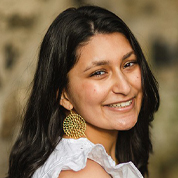
Jaswal is currently conducting research at Harvard Medical School, studying costimulatory pathways in antitumor immunity. With plans to pursue an M.D./Ph.D., she aims to become a physician–scientist in oncology, bridging molecular discovery and clinical application. Her research interests include developing targeted immunotherapies and identifying biomarkers that predict therapeutic responses. Beyond the lab, Jaswal is committed to expanding access to innovative cancer treatments and addressing disparities in cancer care. Ultimately, she hopes to contribute to a future in which cancer therapy is guided by molecular insight and tailored to the biology of both the tumor and the patient.
Rachel Kiser, junior, University of South Carolina
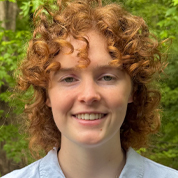
While working for the National Institutes of Health, Kiser designed and pursued a research project investigating aversive learning pathways in the midbrain to further understand addiction. Over the past year, she has expanded that project in a biochemistry lab at USC, studying protein–protein interactions in the human heart proteome. With a strong interest in academic research and molecular biology techniques, Kiser plans to pursue a Ph.D. in biochemistry, focusing on the ubiquitin–proteasome system. Ultimately, she hopes to become a professor, advancing scientific discovery while inspiring future generations of scientists.
Ebony Lee, sophomore, Lane College
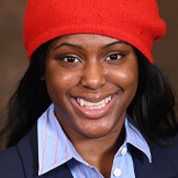
Lee is preparing for a career as a pharmaceutical scientist, with a goal of developing natural, affordable remedies for serious illnesses such as cancer, sickle cell anemia, diabetes and cardiovascular disease. Committed to equity in health care, she envisions bridging the gap between scientific discovery and communities historically excluded from its benefits. Through this work, Lee hopes to amplify minority voices in science, challenge systemic barriers, and build a more inclusive health care system. By centering research on the needs of underrepresented communities, she aims to redefine the reach and impact of pharmaceutical science for future generations.
Abigail Lopez Freire, junior, Yale University
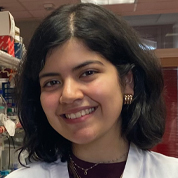
Lopez Freire is a B.S./M.S. candidate in molecular, cellular and developmental biology at Yale, focusing on telomere maintenance mechanisms in cancer. Through the Tetelman Fellowship, she expanded her research in the Maria Blasco lab at the Spanish National Cancer Research Centre, using a humanized mouse model of idiopathic pulmonary fibrosis to study POT1 mutations. These experiences have shaped her long-term goal of pursuing an M.D. and becoming a pediatric oncologist, combining cutting-edge research with compassionate care. Committed to bridging science and medicine, Lopez Freire aims to address health disparities in Latinx communities through mentorship, storytelling and advocacy.
Luxel Moliko Djouba, junior, Towson University
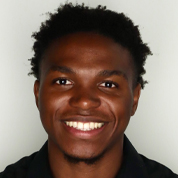
Moliko Djouba is majoring in molecular biology, biochemistry and bioinformatics and is fascinated by the intersection of molecular genetics and cancer biology. Through research on telomerase activity in HeLa cells using CRISPR/Cas9 technology, she has explored mechanisms of cellular immortality in cancer. This experience, along with a personal connection, has fueled her passion for oncology and molecular pathology. Moliko Djouba plans to attend medical school and aims to bridge the gap between research and clinical care. Committed to equity in science, she also hopes to inspire and mentor future scientists from underrepresented backgrounds.
Eva Reilly, sophomore, Rochester Institute of Technology
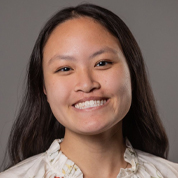
Reilly aspires to become a biochemistry professor, advancing research on the biochemical mechanisms of disease and developing translational treatments to improve patient outcomes. Currently pursuing a B.S. in biochemistry with a minor in psychology, she plans to pursue a Ph.D. focused on neurological diseases. She is inspired by research on infectious disease enzymes and their connection to protein function. Alongside her scientific pursuits, Reilly is deeply committed to teaching and mentorship, leveraging her experience as a learning assistant, teaching assistant and peer mentor to foster curiosity and support student success.
Srika Talanki, junior, Nova Southeastern University
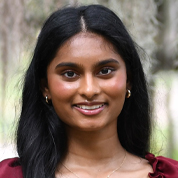
Talanki’s experience as a medical assistant working at a Federally Qualified Health Center sparked a commitment to women’s health and a future career as an OB-GYN. Witnessing the relief of expectant mothers receiving accessible care inspired her curiosity about the scientific questions that could further improve health outcomes. In addition to women’s health, Talanki is also interested in cancer biology and endocrinology, where clinical experience has deepened her understanding of the emotional and personal dimensions of patient care.
Angel Tang, sophomore, Wellesley College
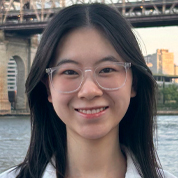
Driven by classroom experience, Tang has pursued research at the McGovern Institute for Brain Research to explore molecular and cellular mechanisms in Parkinson’s disease. Through work in the Ann Graybiel lab, she has studied dopaminergic pathways in the basal ganglia, gaining insight into the neural circuits underlying movement disorders. Building on this foundation, Tang is interested in translational medicine and how research can inform clinical interventions to improve patient outcomes. She plans to pursue an M.D./Ph.D. and aims to translate neurobiology research into compassionate, human-centered medical practice.
Enjoy reading ASBMB Today?
Become a member to receive the print edition four times a year and the digital edition monthly.
Learn moreGet the latest from ASBMB Today
Enter your email address, and we’ll send you a weekly email with recent articles, interviews and more.
Latest in People
People highlights or most popular articles

From humble beginnings to unlocking lysosomal secrets
Monther Abu–Remaileh will receive the ASBMB’s 2026 Walter A. Shaw Young Investigator Award in Lipid Research at the ASBMB Annual Meeting, March 7-10 in Washington, D.C.

Chemistry meets biology to thwart parasites
Margaret Phillips will receive the Alice and C. C. Wang Award in Molecular Parasitology at the ASBMB Annual Meeting, March 7-10 in Washington, D.C.

ASBMB announces 2026 JBC/Tabor awardees
The seven awardees are first authors of outstanding papers published in 2025 in the Journal of Biological Chemistry.

Decoding how bacteria flip host’s molecular switches
Kim Orth will receive the Earl and Thressa Stadtman Distinguished Scientists Award at the ASBMB Annual Meeting, March 7–10, just outside of Washington, D.C.

Thiam elected to EMBO
He was recognized during the EMBO Members’ Meeting in Heidelberg, Germany, in October.

The timekeepers of proteostasis
Learn about the cover of the winter 2026 ASBMB Today issue, illustrated by ASBMB member Megan Mitchem.

